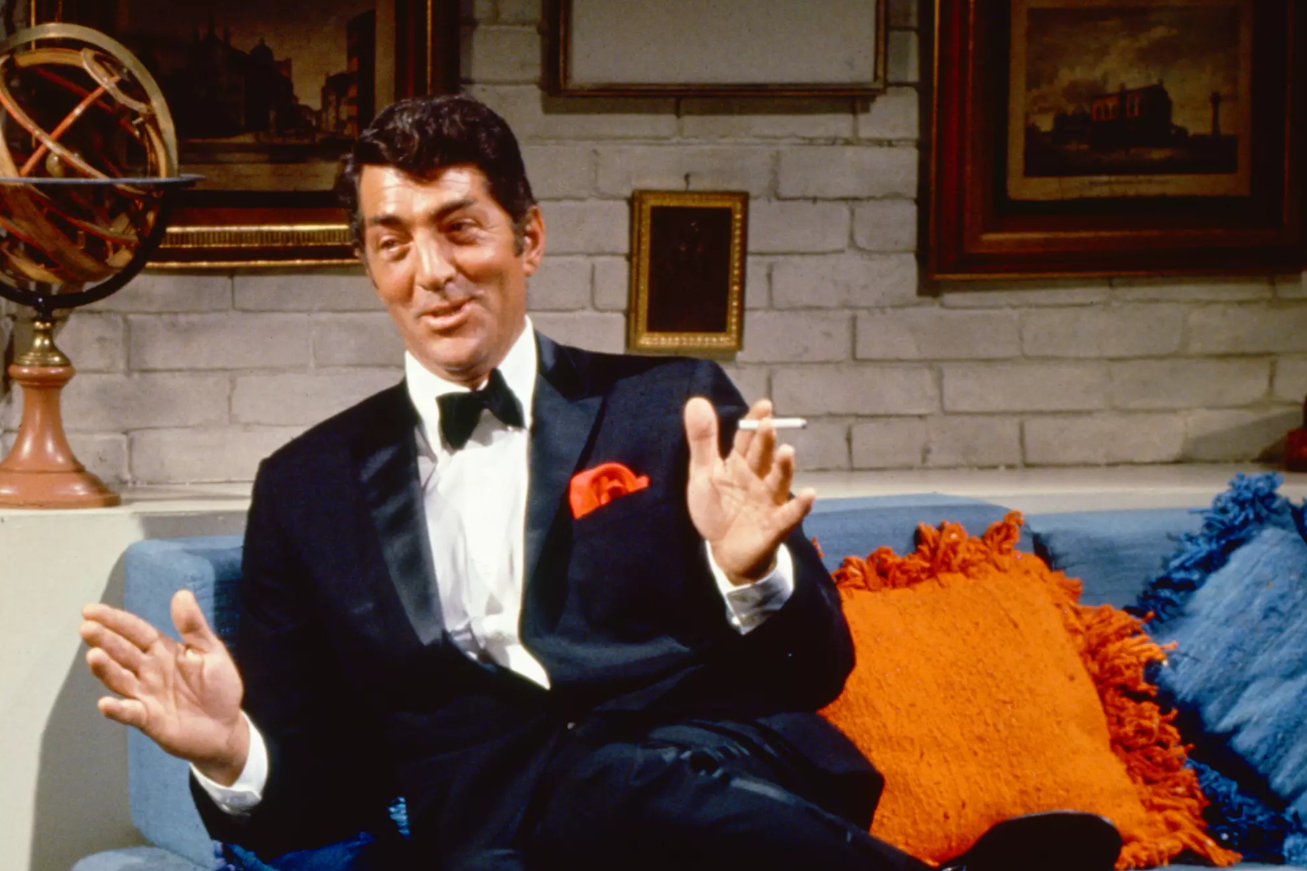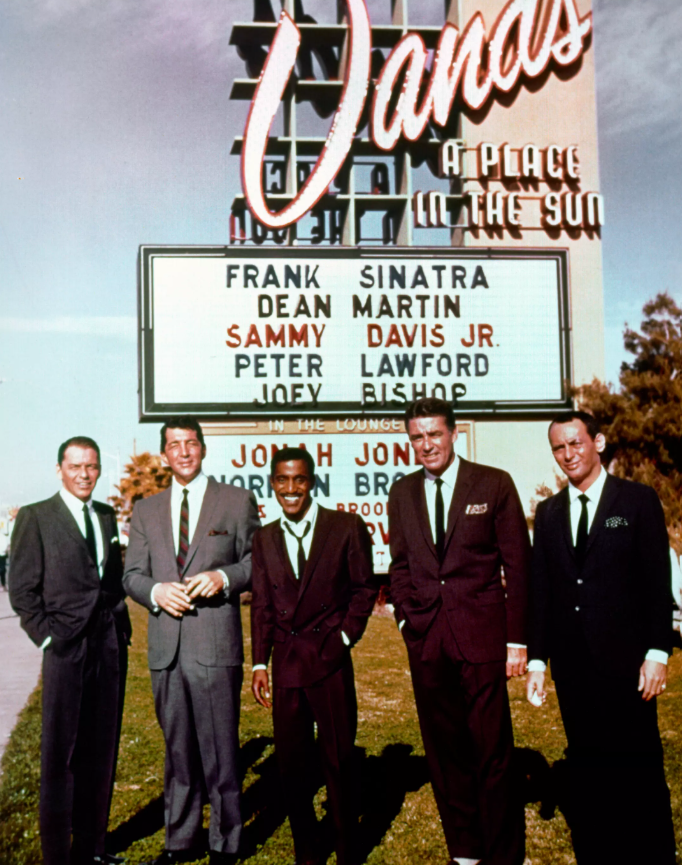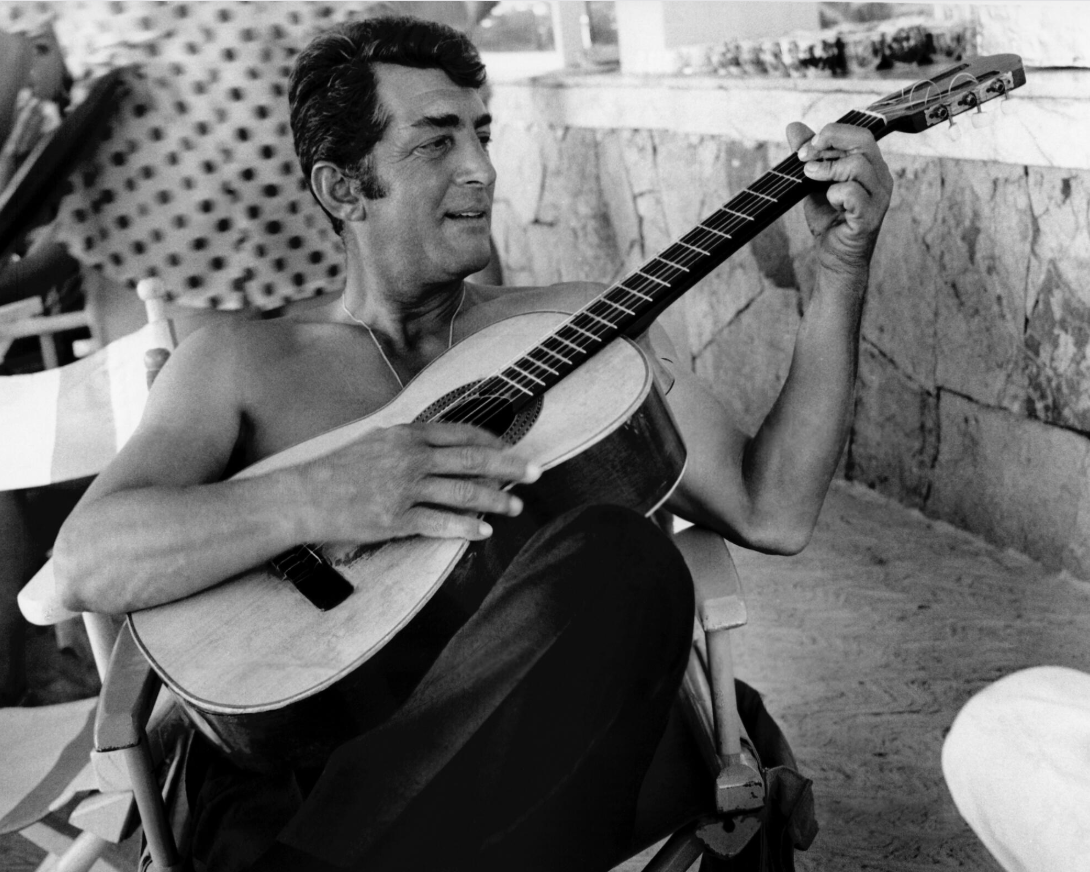Tis the season for Dean Martin — the one month of the year when he’s ubiquitous once again, haunting tinseled malls and cocktail-party playlists, a ghost of Christmas past whose voice can make even the balmiest West Coast day feel like a marshmallow world in the winter. Of the 10 most-played Dino tracks on Spotify right now, seven are holiday novelties — jovial corn for popping. “Let It Snow! Let It Snow! Let It Snow!” is No. 1, with 351 million streams, presumably racked up largely between Black Friday and New Year’s Day.

It’s a strange state of affairs for an artist who was once a year-round fixture of the entertainment landscape — a genial omnipresence whose breezy, boozy, hardly-workin’ charm came across on every platform he touched, from stage to screen to radio to records, in comedy and drama and celebrity roasts.
Lately, a guy named Jimmy Edwards has been thinking a lot about Martin’s place in the modern media landscape — where Dean is right now, some 27 years after his death at age 78, and where he ought to be, culturally speaking. Edwards is a music industry veteran whose résumé includes a decade at Warner Music Group as well as a few years at Frank Sinatra Enterprises. Last summer he became the president of Iconic Artists Group, a company that manages the legacies of a roster of eminent rock and pop artists, including the Beach Boys, David Crosby, Stephen Stills, Linda Ronstadt and Nat “King” Cole.

Last month, Iconic acquired an equity position in the rights held by the Dean Martin estate, which includes his music, vast amounts of work across the audiovisual spectrum, along with a lifetime of archival ephemera — and will use all that material to put Dean back in front of the whole world again. A new documentary film is now in discussion; a full-fledged Dean biopic might be a possibility down the road, Edwards says. (There’s never been one, although Martin Scorsese and “Goodfellas” screenwriter Nicholas Pileggi took a run at the idea in the late ‘90s.)
“Everything is on the table if it’s appropriate for the artist,” he says. “We’re looking at documentaries, we’re looking at biopics, we’re looking at musicals. We’re looking at lifestyle plays. Apparel. Beverages. Distilled spirits.”

And, yes, Edwards says, Dino will be on TikTok. “We get up every morning,” Edwards says, “and we think, ‘How are the next five years gonna look? Where do we want him to be seen? How do we want him to be defined within popular culture?”
By the turn of the 1960s, Martin and his Rat Pack cronies Frank Sinatra and Sammy Davis Jr. had become the show-business avatars of a postwar America that swung and swaggered, the embodiment of the optimism of a country that felt poised to build Hiltons on the moon. Their live performances are the stuff of legend, in large part because practically none of what they did onstage would fly today — the drinking, the smoking, the machismo reasserted through misogynist and homophobic banter, Martin physically picking Davis up and saying “I’d like to thank the NAACP for this wonderful trophy.”
